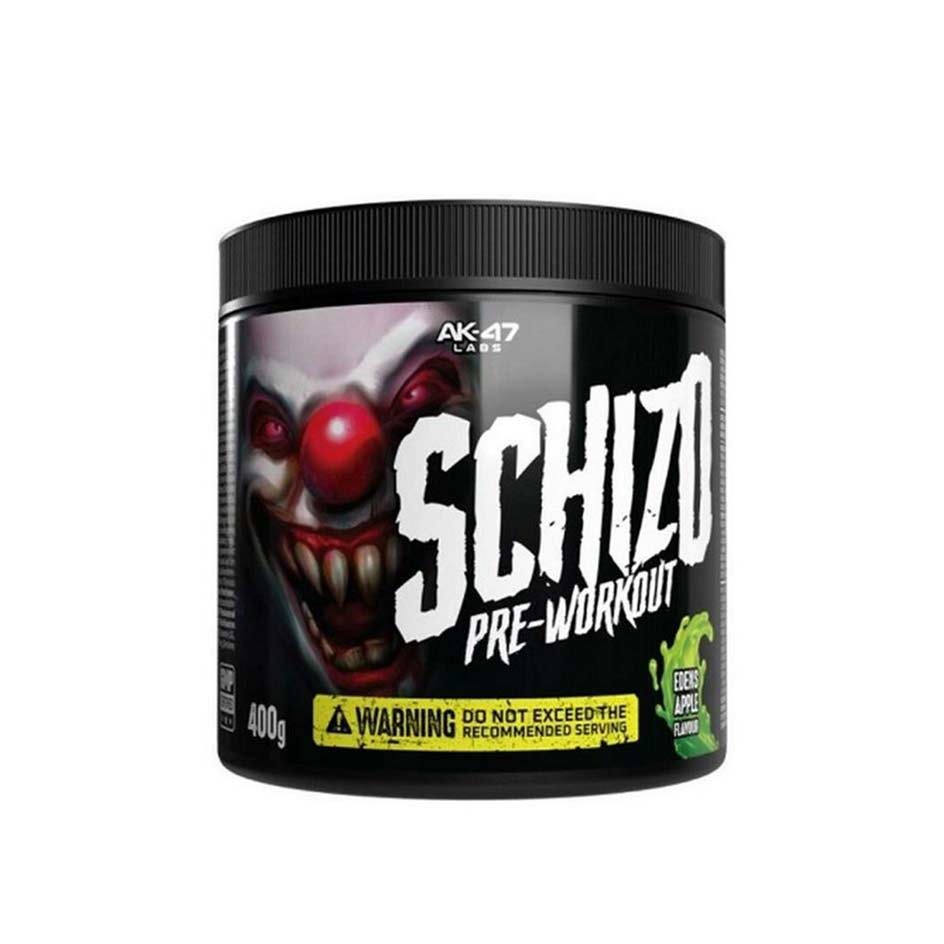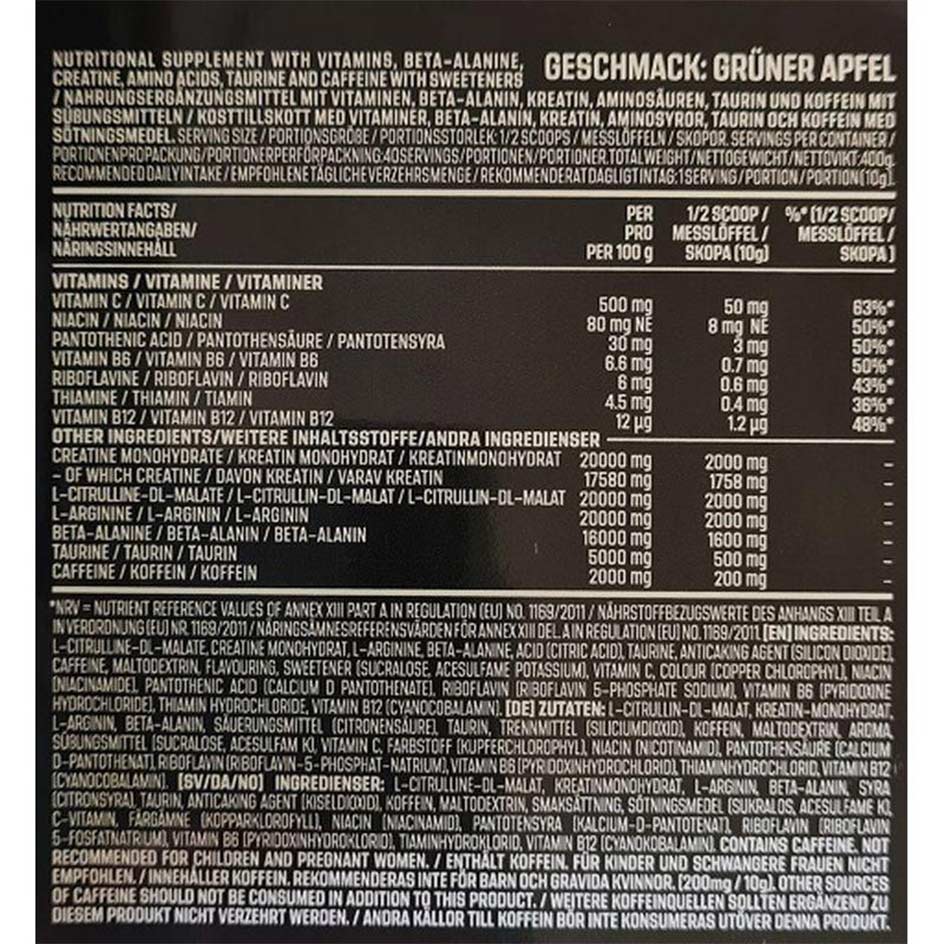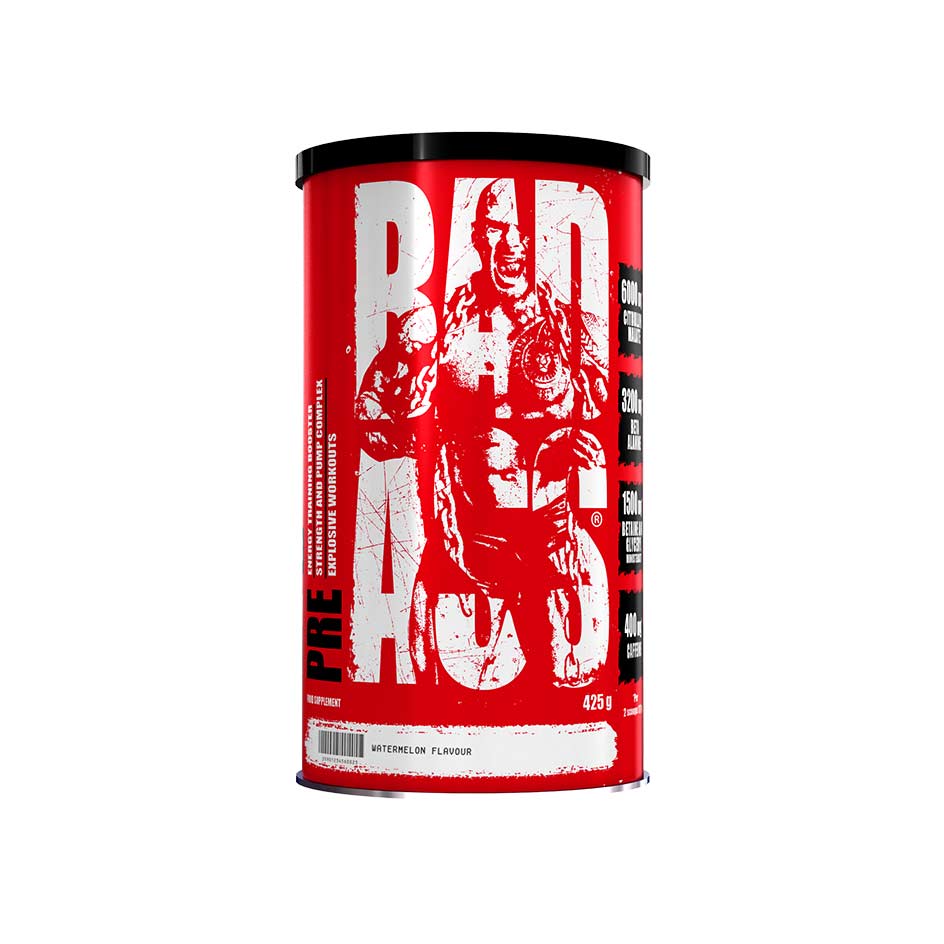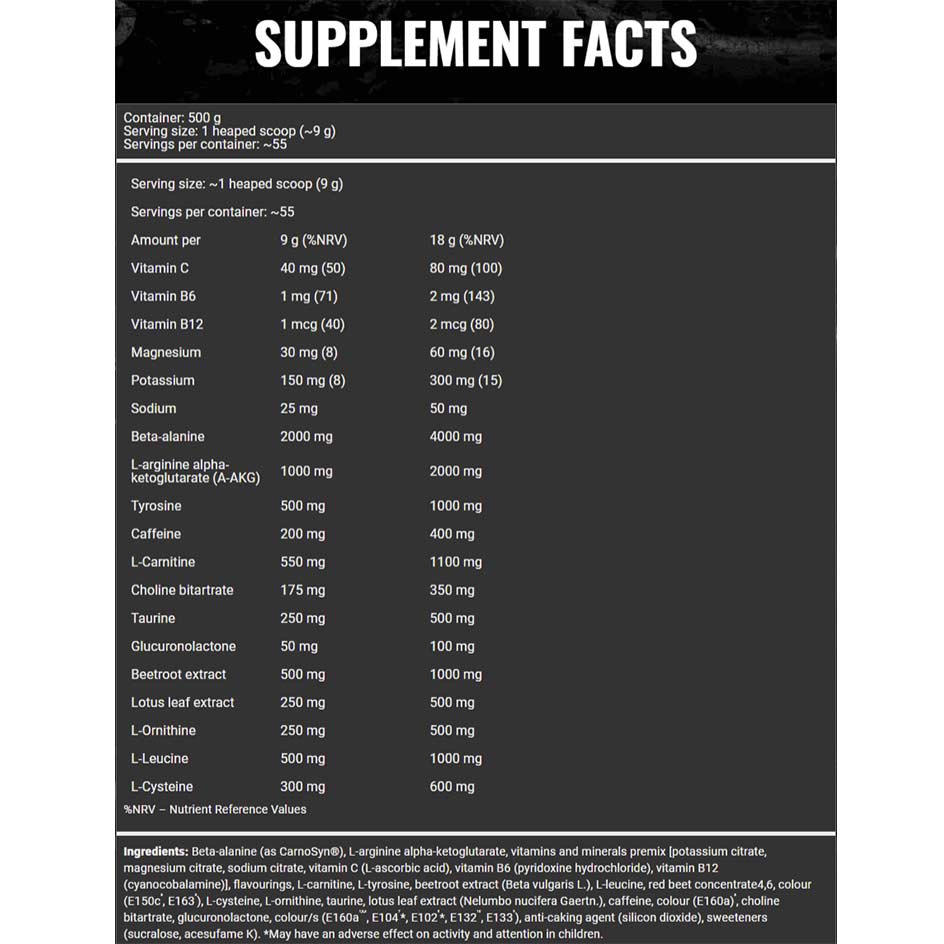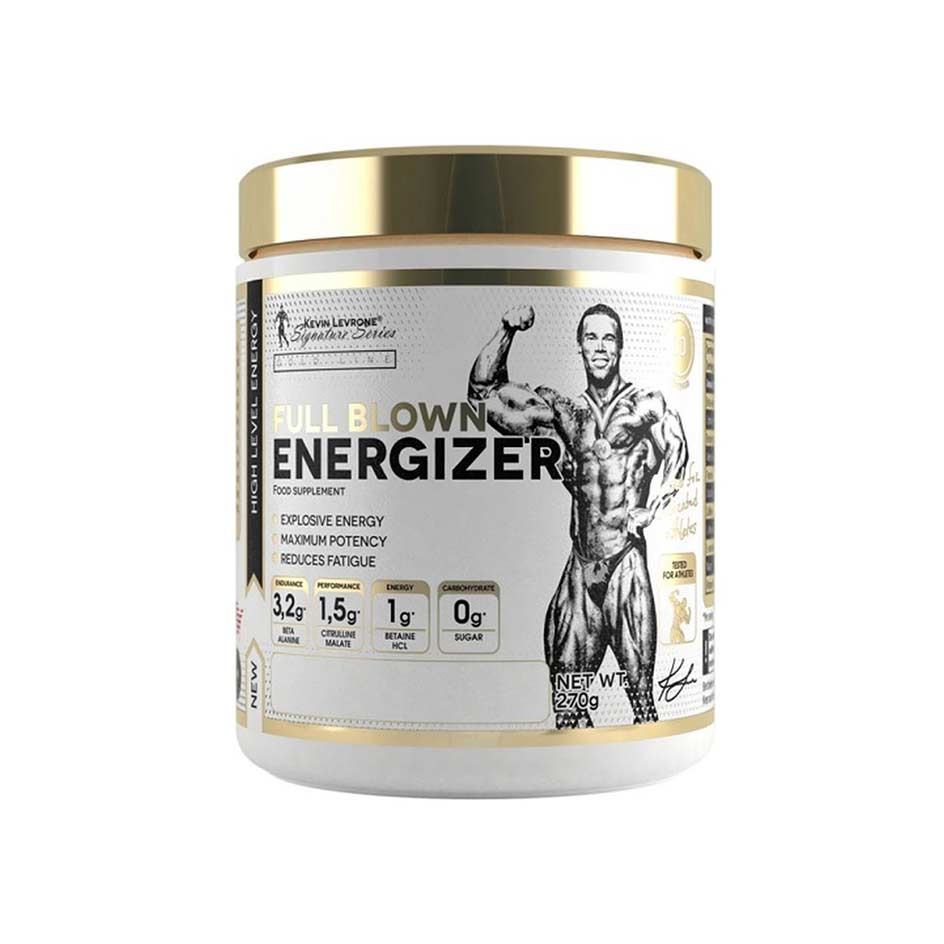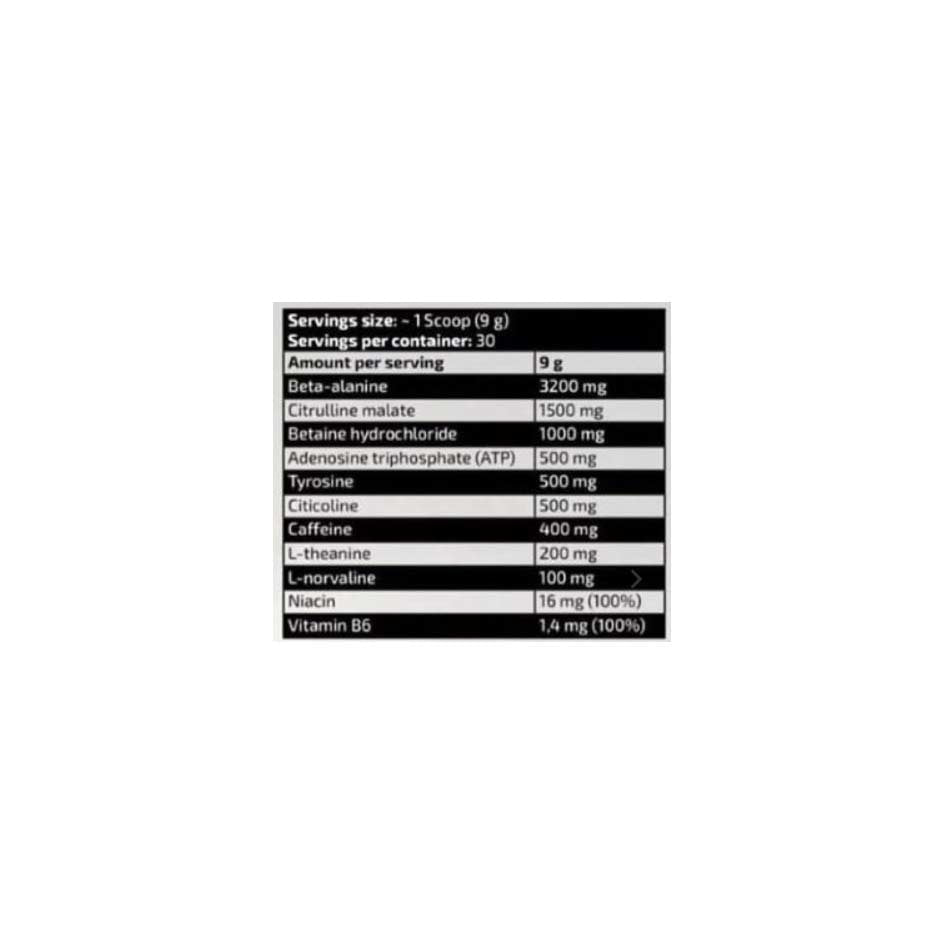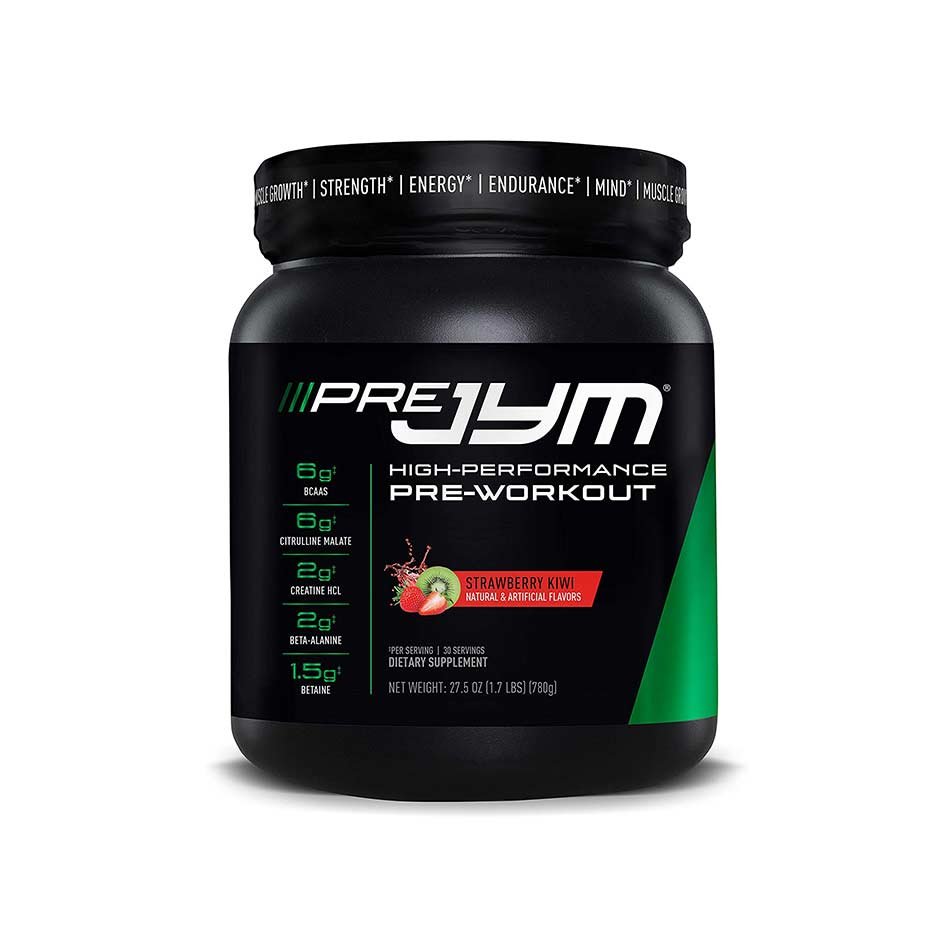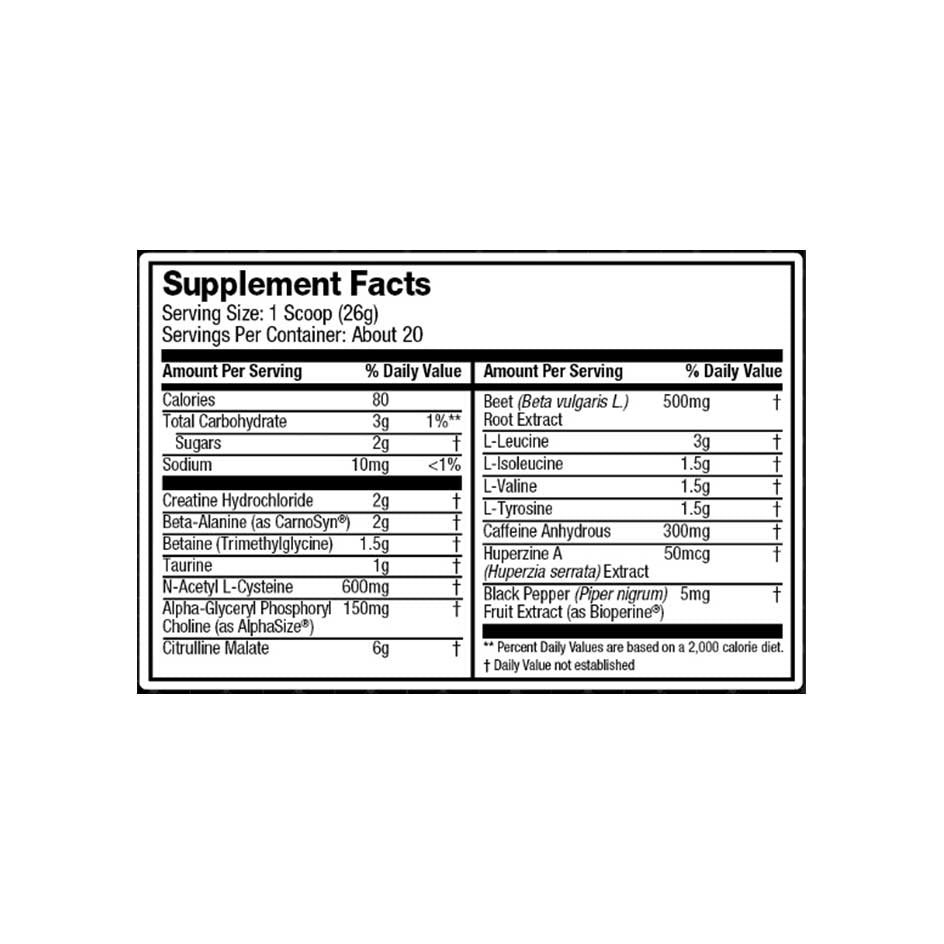Tiredness, lethargy, and a lack of motivation to work out are unfamiliar to both amateur and professional athletes – even the most successful bodybuilders and the most ambitious fitness influencers know these feelings. But what do you do when you have a workout coming up and you don't feel like it? Either you go to the gym reluctantly, only doing the bare minimum – or you drink a pre-workout booster before training. Such boosters can significantly increase both motivation and performance, thus contributing to a more effective workout. If you want to buy a pre-workout booster, you should know what to look for in these power drinks.
Definition: What are pre-workout boosters?
Pre-workout boosters are sports nutrition supplements taken before training. They are available over the counter in both powder and (less commonly) capsule form. You'll learn more about the advantages and disadvantages of capsule pre-workout boosters compared to powder workout boosters below.
The primary function of pre-workout boosters is to increase performance, both mentally and physically. This generally works very well, provided they are not used regularly or are limited to individual training sessions. With long-term use of pre-workout boosters, a habituation effect soon sets in, which limits or even completely eliminates their effectiveness.
Benefits: What do pre-workout boosters do?
Pre-workout boosters banish fatigue, increase concentration, and, to a certain extent, boost strength and endurance. Depending on their composition, they also increase blood flow to the muscles—in this respect, their effect overlaps with that of pump boosters. There's no clear distinction between pre-workout boosters and pump boosters anyway; many products fall into both categories. Ultimately, the ratio of the active ingredients alone determines whether a training booster should be considered a pre-workout booster or a pump booster.
What pre-workout boosters DO NOT do, however (and pump boosters do not either): They do not stimulate the release of neurotransmitters like adrenaline and dopamine. Only hardcore boosters do that.
How they work: How do pre-workout boosters work and what ingredients do they contain?
All pre-workout boosters have a similar composition, meaning they largely contain the same ingredients (regardless of the brand). However, you have to be careful with boosters manufactured outside the EU and explicitly sold as "non-EU boosters" or "US boosters" or "US versions": These often contain stimulants like DMHA and agmatine – ingredients that are not approved within the EU. Whether they are still considered pre-workout boosters is a matter of opinion – a training booster containing DMHA is essentially a hardcore booster – but many sellers don't care about the correct categorization. If you really only want to buy a pre-workout booster, look for terms like "EU booster" or "EU version" in the description of your desired product. Or just read the ingredients list on the label very carefully.
Typical ingredients of (EU) pre-workout boosters are the following:
caffeine
Caffeine is included in every pre-workout booster because it is the most effective legal "wake-up" ingredient. Accordingly, caffeine is also the most widely consumed psychoactive substance worldwide. It not only banishes fatigue but also stimulates the metabolism, resulting in a short-term increase in performance. (It is well known that caffeine is therefore considered an ergogenic substance in sports. The increase in physical performance through caffeine isproven by studies.) There are also caffeine-free boosters (see below: Pre-workout boosters without caffeine), but these are not pre-workout boosters in the true sense of the word.
Beta Alanine
The amino acid beta alanine regulates, among other things, the pH level in the muscles. This delays muscle acidification during physical exertion, which increases athletes' endurance.
L-Arginine
Arginine is also an amino acid, just like beta-alanine. It causes increased conversion of nitric phosphate into nitric oxide—a gas that dilates blood vessels. The nitrogen results in a stronger pump during exercise. The amino acid arginine is also said to improve post-exercise recovery.
L-tyrosine
L-tyrosine is also an amino acid. It functions as a neurotransmitter in the body. As such, it can improve coordination and increase reaction speed (which is particularly important in sports that require speed, such as boxing, table tennis, or fencing). Tyrosine also has a mood-enhancing effect; however, this is not comparable to the euphoric effect of stimulants such as DMHA.
Creatine
Creatine draws water into muscle cells and supports energy production; both generate more power during weight training. However, this effect only occurs with daily creatine intake over several weeks. Since pre-workout boosters shouldn't be taken every day or before every workout, creatine is essentially unnecessary as a pre-workout booster ingredient. Pre-workout boosters also typically contain vitamins, flavorings, and simple sugars or glucose. The sugar isn't a disadvantage, as it provides quick energy. However, there are also low-calorie pre-workout boosters that are sweetened with sweeteners.
Pre-workout booster without caffeine
Quite a few athletes do not want caffeine in their booster. There are many reasons for this: Firstly, caffeine can have side effects in sensitive individuals – such as fidgeting, nervousness, or heart palpitations – and secondly, the wake-up effect of caffeine lasts for several hours. (Caffeine has a half-life of about five hours. Therefore, if you train in the evening and drink a caffeine booster beforehand, you may not get to sleep until late.) In addition, most people – including most athletes – drink coffee during the day and thus already consume caffeine. With an additional booster before training, you can easily reach a daily caffeine intake of 500 to 600 mg. To put this into perspective: a cup of regular filter coffee contains 80–100 mg of caffeine (source:kaffeelust.de). According to theEuropean Food Safety Authority (EFSA)However, only around 400 mg of caffeine per day is safe, and even 100 mg can negatively affect the quality of your night's sleep.
Finding a pre-workout booster without caffeine is practically impossible, however, because every pre-workout booster contains caffeine in some form (perhaps as green tea extract or guarana). Pump boosters offer an alternative: Pump boosters typically contain no caffeine and don't provide a boost; at best, they have a mild mood-enhancing effect (thanks to the added L-tyrosine). However, they provide an excellent pump during training.
Pre-workout booster in capsule form
The vast majority of pre-workout boosters are offered as drink powders, but there are also capsule boosters on the market. The advantage of capsule boosters: They can be taken quickly anywhere; you don't need a shaker or water to prepare them. The disadvantage: The capsule shell has to dissolve in the stomach first, which is why capsule boosters take effect only with a delay. (They should therefore be taken about 30 minutes before training.) And: Capsule boosters are generally somewhat more expensive than powder boosters. Furthermore, the quantity of ingredients in capsule pre-workout boosters is not as large as in powder boosters – this is simply because capsules cannot exceed a certain size (otherwise they are difficult to swallow).
Side effects: What side effects can be expected from pre-workout boosters?
The potential side effects of pre-workout boosters aren't too serious, because apart from caffeine, (real) pre-workout boosters don't contain any substances that can cause side effects. The situation is different with hardcore boosters – but those aren't what we're talking about here. So, if you tolerate caffeine well and don't overdo it, you shouldn't have any problems.
However, it's always possible that individual users may be sensitive to certain ingredients. For example, some pre-workout boosters contain the substance synephrine – a protoalkaloid found in bitter orange. Due to its chemical similarity to adrenaline, synephrine has a stimulating effect on the cardiovascular system, and especially in combination with caffeine, this effect can be quite strong in some people. Sensitive users may experience dry mouth, excessive sweating, severe tremors, and perhaps even nausea and vomiting. Unfortunately, synephrine is often not listed in the ingredients list of boosters (and also in various fat burners), even when the alkaloid is present in high doses.
If you experience side effects after consuming a pre-workout booster that are unacceptable to you, the only solution is to stop using it or switch to a different product. It's almost impossible to determine which individual substance is causing the unwanted effects in you.
Buying recommendation: What should you consider when buying pre-workout boosters?
If you want to buy a pre-workout booster, you should make sure that you are actually getting a pre-workout booster – and not a hardcore booster or a pump booster.
But how can you be sure? The categorization provided by the respective manufacturer or online store isn't reliable. Instead, pay attention to the list of ingredients. The general rule is:
- Pre-workout boosters contain a combination of energizing ingredients (NOT stimulants) and pump-inducing substances. The focus is on the energizing ingredients.
- Pre-workout boosters do not contain any ingredients classified as "novel foods" under EU regulations, which means they are prohibited for sale within the EU. Pre-workout boosters also do not contain any ingredients that are subject to pharmaceutical regulations or are prohibited for other reasons (e.g., because they are on the WADA list of known doping substances).
Conclusion
Whether pre-workout boosters are as "important" in strength training as whey protein or creatine is a matter of differing opinions. However, their use is occasionally quite sensible – namely when
- for whatever reason (lack of sleep, too warm weather, etc.), you are not able to complete your training at the usual level of performance, or if you
- wants to set new records in training and needs a short-term energy boost.


















































































